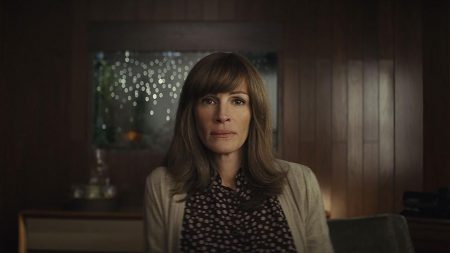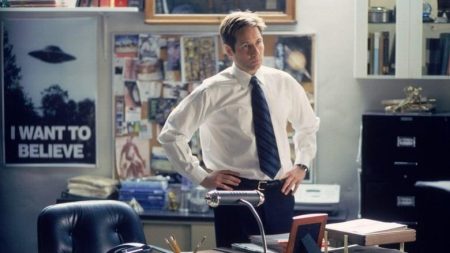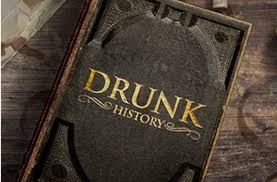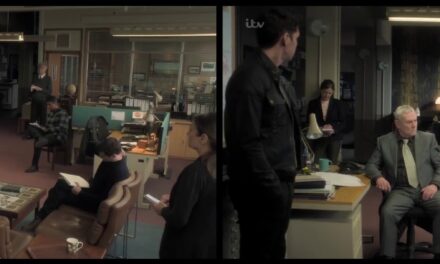What’s particularly remarkable about Homecoming’s paranoia, however, is that it doles it out and inspires it in the viewer in about thirty minutes or less, opting for sitcom-length episodes where so many other thrillers and dramas usually require an hour. So much of the commentary about the show has focused as much on this aspect of it as it has on the performances, the stylized look of it, or the plot. Quartzy’s Adam Epstein, for example, specifically praises Homecoming for having “all the profundity and seriousness of a 60-minute with half the fat,” and Den of Geek’s Louisa Mellor is equally enthusiastic about the half-hour blocks, “a joy in this age of runtime bloat.” Along the same lines, Vulture’s Jen Chaney even begs, “Please TV people, make more half-hour dramas! A nation of TV critics turns its lonely, bleary eyes to you.”
Aside from what the cast and crew do with those thirty minutes and how the limited timeframe contributes to the mystery of the series, its critical success will no doubt spawn imitators or, at the very least, encourage other producers to adopt the same format and grant Chaney her wish. But, even if it doesn’t, the current state of television and the content craze of new media make the half-hour series format immensely appealing and realistically desirable. With so many shows to choose from and so many options at your disposal, who has time for a fifteen-to-twenty hour rewatch of a season of House, especially when you can get your jolts from a full season of Homecoming in just over five hours? I must admit that, beyond the show’s rave reviews, the prospect of its twenty-six minute pilot—an easy fit in a busy day—seemed just too enticing to pass up. And, drawn in by the narrative, I stuck around for two more, taking up, in total, about the equivalent of a feature-length film. (Calling it “super-bingeable,” Uproxx’s Brian Grubb finished “the entire season in two sittings” and is already talking about his rewatch plans.)
Now maybe I’m still feeling the after-effects of the show’s moody paranoia—and let me look out my window one more time to make sure that I’m still alone—but, for all the benefits of that time, I can’t help but feel that we, as audiences, are also being “reprogrammed,” whether on purpose or by accident, to want shorter episodes. Amidst the onslaught of YouTube clips and Twitter sound bites that gratify our decreasing attention spans and ease (or spike) our daily fears of missing out, the psychological one-hour mystery, once home to Columbo’s extended harassment or Monk’s perpetual OCD (or even the ongoing debate between Mulder’s speculations and Scully’s skepticism), now seems like a prison sentence or an interrogation technique, soon to be an artifact from the ghost of television past. Even in the midst of a truly great series—and a recent Mrs. Maisel binge comes to mind—I, like the poet Andrew Marvell, “always hear/ Time’s wingèd chariot hurrying near” (21-22).
I am reminded of Nicholas Carr’s concerns about the consequences of the digital age several years back in The Shallows and how he lamented the loss of his patience for longer books and articles. Where he used to “spend hours strolling through long stretches of prose,” he noticed that his concentration was now “[drifting] after a page or two” and that he had to actively “[drag his] wayward brain back to the text” (5-6). Given the obvious connections between technology and media, the impact on prose and reading seemed like the more immediate side effect for Carr, but, if our brains are being rewired, then our tastes in and for media itself are undoubtedly being reconfigured as well. And regardless of how much bandwidths expand, storage capacities increase, and cell phone or tablet batteries endure, the changes to our viewing habits could result in something more permanent.
Although Carr referred to the difficulties of “deep reading” and focused thought through the seemingly infinite distractions of the Net, we could be talking about the loss of “deep viewing” as well—of that entertaining experience of throwing ourselves headlong into a longer, more involved serial narrative, of losing ourselves in the complexities of Walter White’s transformation from science teacher to Scarface, of pulling out the numerous Easter eggs on Lost and pondering their potential meanings. How engaged can we be with so much to watch, experience, do and so little time?
So, if less is becoming more on television (and if I let my inner Mulder run wild about the design/intention of it all), I wonder if Homecoming, Cobra Kai, the Dexter-ish dramedy Barry, the Facebook Watch tearjerker Sorry For Your Loss (which also jumps around in time) and other shows like them are signs of shorter formats whose time has finally come or is soon coming and of the growing need for brevity that our evolving, expanding, digitally exploding culture is creating. Perhaps, we will see the day when episodes are little more than movie trailers—an intense five minutes of emotion and mayhem—and movies are roughly the length of what we used to think of as episodes. While the loss of slow-burn television, drawn-out storylines, and the delicious build of tension seems horribly tragic, the thought of binge-watching a season in under an hour admittedly gives me some strange comfort; maybe that could be the cure for my nagging FOMO tremors. So let the content craze continue. Someday quite soon, that is what we could be coming home to and all that we will have time for.
Douglas L. Howard is Chair of the English Department on the Ammerman Campus at Suffolk County Community College and co-editor, with David Bianculli, of Television Finales: From Howdy Doody to Girls (Syracuse University Press, 2018).
Works Cited
Carr, Nicholas. The Shallows: What the Internet Is Doing to Our Brains. W.W. Norton, 2011.
Marvell, Andrew. “To His Coy Mistress.” Andrew Marvell: The Complete Poems, edited by Elizabeth Story Donno, Penguin Books, 1987, pp. 50-51.






